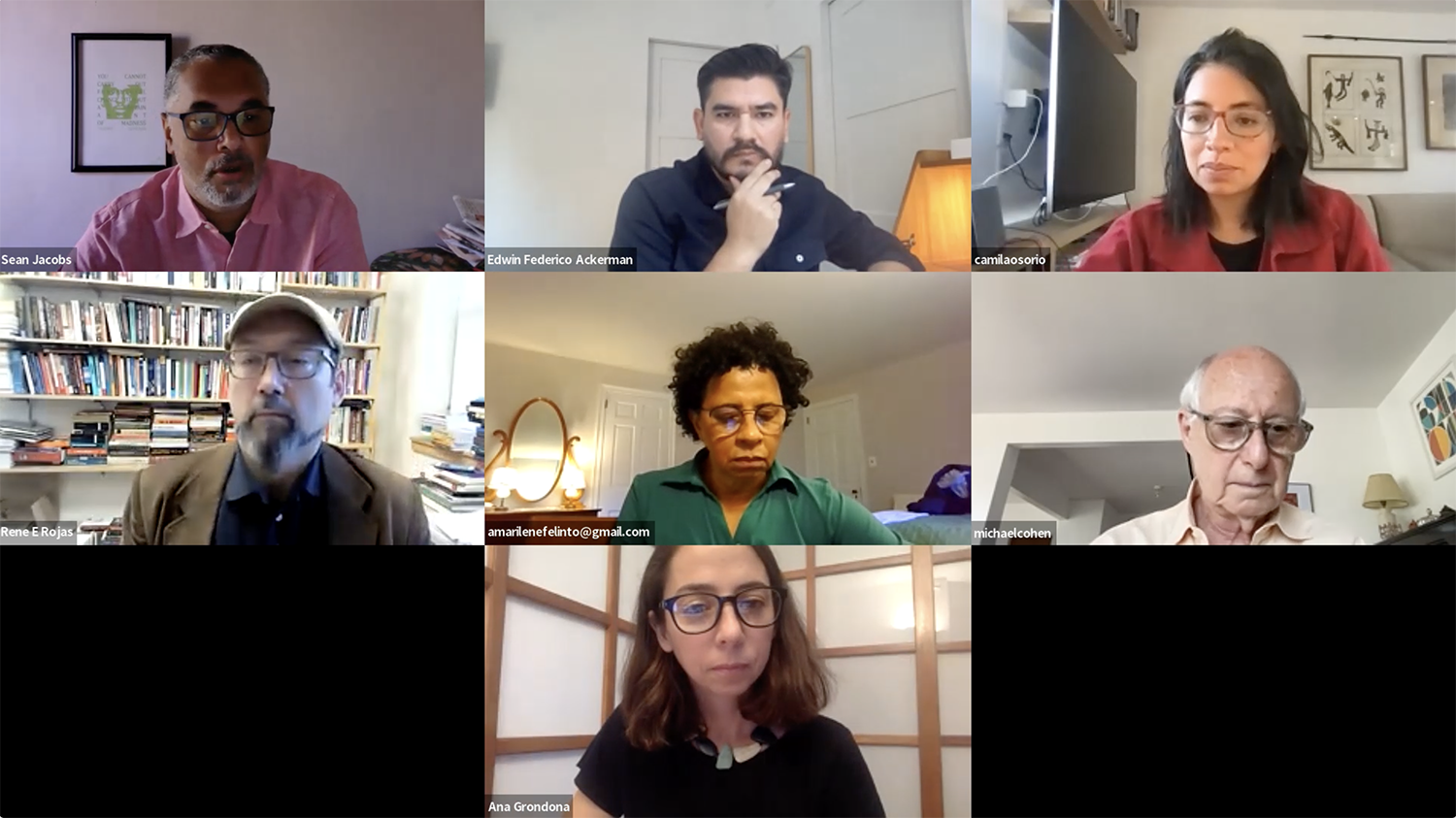
Parsing Latin America’s “New Pink Tide”
by Sean Jacobs
In December 1982, after he had been awarded the Nobel Prize for Literature, Gabriel Garcia Marquez, the Colombian writer told the audience at his Nobel Lecture in Oslo: “Latin America neither wants nor has any reason, to be a pawn without a will of its own.” He then asked: “Why … the social justice sought by progressive Europeans for their own countries cannot also be a goal for Latin America, with different methods for dissimilar conditions?” Marquez proceeded to answer his own question: European leaders and thinkers, his hosts, “have forgotten the fruitful excess of their youth as if it were impossible to find another destiny than to live at the mercy of the two great masters of the world.” He concluded: “This, my friends, is the very scale of our solitude. In spite of this, to oppression, plundering and abandonment, we respond with life …”
Since 2018, presidents who identify with the left have won or retaken office in Mexico, Bolivia, Peru, Honduras, Chile, Argentina, Colombia, and, at the beginning of November, after two rounds of voting, in Brazil. This has some wondering whether this is a repeat of the “Pink Tide,” when at the start of the 21st century there was a turn towards left-wing governments in Latin America moving away from neoliberalism, away from being junior partners to US hegemony, and towards more progressive economic models. By the 2010s many of these governments had been voted out of power by conservative or rightwing oppositions or some had been destabilized by the US or changes in their economic fortunes. Then, in 2018, Mexico elected Andrés Manuel López Obrador (AMLO), and Argentina followed in 2019 when Mauricio Macri was voted out of power. Even a brief coup by the right couldn’t prevent a leftist government from being reelected in Bolivia in 2020. In 2021, Peru, Honduras and Chile elected leftwing governments. Finally, in 2022, Colombia elected the first left-wing president and its first black, vice president, also a leftist, in its history. On 1 January 2023 Lula will be sworn in as Brazil’s new president.
A panel discussion, titled “The New Pink Tide in Latin America?,” at GPIA on November 3rd wanted to unpack these new developments. This event was part of the “Decolonizing International Affairs Lecture Series.” The lecture series surveys the field of International Affairs in response to new global realities, from Black Lives Matter and democratic socialism to ascendant right-wing movements and conflicts stemming from the acute ecological and health crises that confront the twenty-first century. It is also part of a foundational course in GPIA on Theories, Histories and Processes of Development. Previous public events were on “Drug Politics: From AIDS to COVID-19,” “The Problem with Economics” and “The Global Movement for Black Lives.”
The panelists represented a wide array of experiences and countries. Marilene Felinto (Brazil) and Camila Osorio (Colombia) are journalists. Edwin F Ackerman (Mexico), Ana Grondona (Argentina), and Rene Rojas are academics and researchers. Their full bios are here. Michael Cohen, the co-director of the Observatory on Latin America, was the discussant.
The event couldn’t escape the drama of the last few days in Brazil. Felinto, a Brazilian writer, journalist and translator, who works as a columnist for Brazil’s paper of record, Folha de São Paulo, had left Brazil two days before to take up a visiting scholar position at the Center for Latin American and Latinx Studies at the University of Pennsylvania. Jair Bolsonaro, the rightwing president, had lost the election and his supporters had effected roadblocks and mass prayer meetings in the open (evangelical Christianity is a big part of Bolsonaro’s pitch). After making brief comments about the relief in Brazil brought on by Lula’s victory, an exhausted Marilene had to leave.
The rest of the panelists agreed that this version of the “pink tide” (a term actually coined by a New York Times journalist who wasn’t a fan of the original group of countries) starts from a more precarious place: they do not have the large majorities or economic prosperity enjoyed by these countries in the early 2000s. Their focuses are often social policies (abortion, gay rights) or the environment. The challenge was whether they’d institute new economic development plans (as AMLO has done to some extent), can overcome early setbacks (as the coalition of Chile’s president, Gabriel Boric, is now facing after voters rejected a new progressive constitution this Fall), can address racial and class inequalities, or, crucially, challenge vested interests through increasing tax on company profits and the rich in their societies (Argentina seemed to have shelved it for now, while Colombia’s new government is debating it.)
You can watch the discussion here:
Sean Jacobs is an associate professor in GPIA and rotates with Sakiko Fukuda-Parr in teaching the seminar Theories, Histories and Processes of Development: Decolonizing International Affairs.